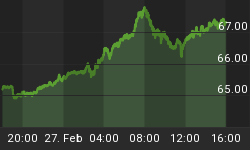The European Central Bank (ECB) will be cutting its refi rate again next week (December 4), the only question being whether the policymakers will opt for a third consecutive 50bp reduction, or bite the bullet and make a larger cut. Last week various Governing Council members were making it clear that they expect a 50bp easing, but after this morning's data releases some may argue for a more significant move.
Today's November Ifo business climate index for Germany - a poll of around 7,000 firms from this key exporting nation - was downright dire. Overall sentiment plunged to its lowest level in nearly 16 years, coming in at just 85.8, down from 90.2 in October. This was the biggest one-month drop since the immediate aftermath of the September 2001 terrorist attacks on the US. The gauge of current conditions fell to 94.8 (99.9 in October) but once again the big news was the expectations index, which plunged to 77.6 (81.4 in October). This is a new record-low expectations reading since the survey began back in 1990 - the previous low-point having been set last month.
Chart 1
The Ifo comes hard on the heels of last Friday's release of various Markit PMI indices. The German surveys showed the country's manufacturing sector in a rapid contraction - the flash PMI came in at 36.7, down from 42.9 in October, well below the 50.0 mark that divides growth from contraction and the lowest since the index began in 1996. The services sector PMI came in at its lowest in five years, at 46.2 (48.3 in October), but the expectations component hit a record low of just 31.4. Clearly, the export powerhouse of the Euro-zone is starting to take a major hit from the global downturn - which indicates the severity of the drop in global demand and also points to a further marked contraction for the Euro-zone over the coming months.
Last week's PMI surveys for the 15-member Euro-zone as a whole also hit record lows, with the manufacturing indicator dropping to 36.2 (41.1 in October) and the services indicator down to 43.3 (45.8 the previous month). Today came the news that industrial new orders in the Euro-zone dropped 3.9% on the month in September - before the ongoing credit crunch started to hit the real economy, and indicating that industrial output will contract in Q4.
This gloomy prognosis was born out by November's Belgian National Bank business confidence index (a leading indicator for Euro-zone growth about six months out), also released this morning. The overall index dropped to -23.7 from -14.8 in October, falling to its lowest level since mid-1993. The sharpest fall was in the manufacturing component, which plunged from -14.9 in October to -27.1 in November.
Chart 2
The Euro-zone is in a technical recession, having recorded negative real GDP growth in the second and third quarters of this year, and appears to be headed for a more severe contraction in Q4 and again in Q1 2009. There is an increasing risk that growth will not return to the 'zone until Q4 next year. The ECB's refi rate - currently at 3.25% - is headed toward the 2.00% level before the end of Q1 2009, and may go lower still. The question is: how fast will it get there?















